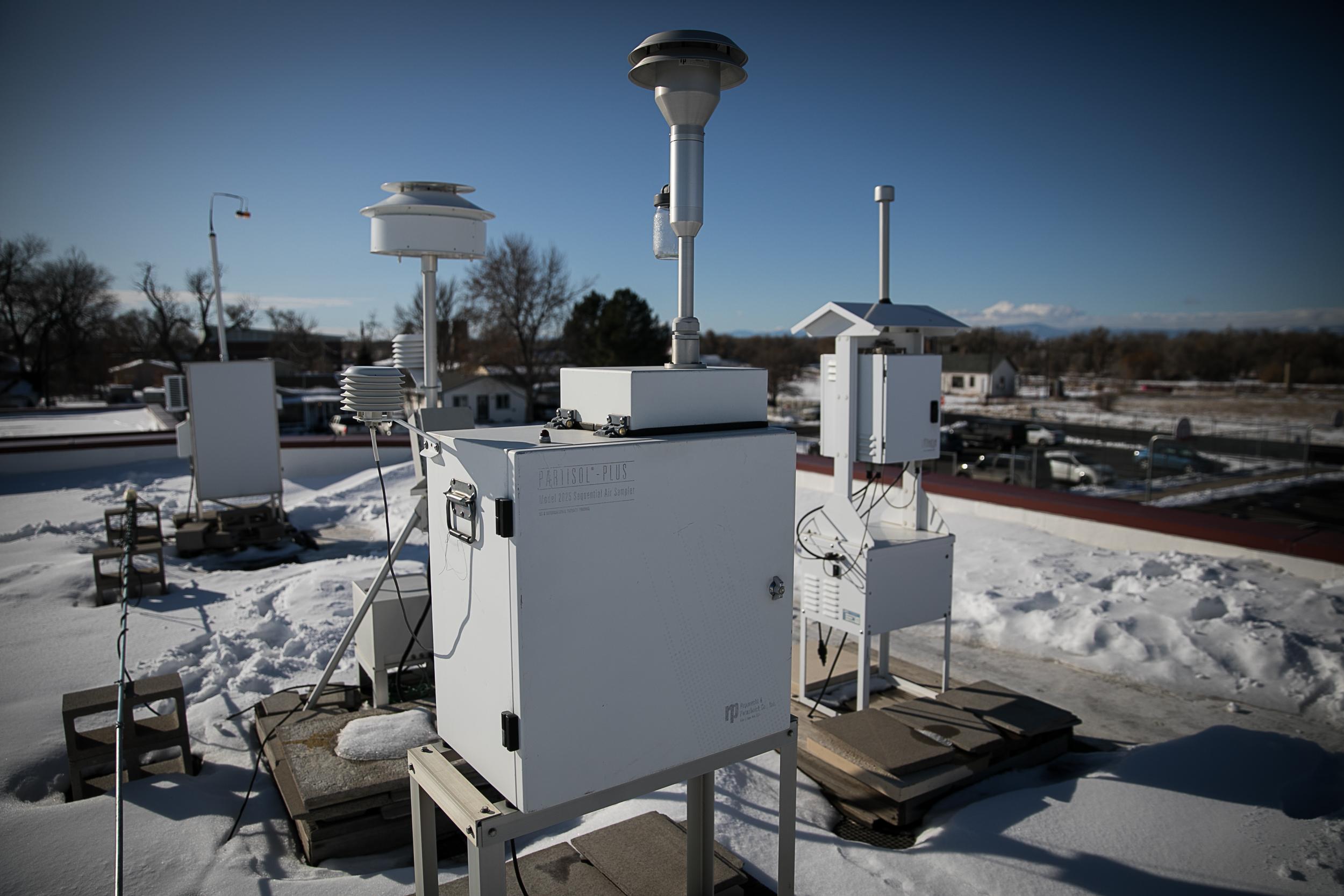
Colorado’s records of how much methane is in the air contain potentially flawed data, a CPR News investigation found.
Air quality officials say data gathered in 2017 and 2018 had issues after California-based third-party lab Atmospheric Analysis and Consulting processed the state's air samples for methane.
The result was that dozens of samples gathered in Denver and Platteville tested lower than the South Pole, a place known to have the cleanest air on Earth.
Even after the methane data was corrected, University of Colorado Boulder Scientist Gabrielle Petron, who first discovered the discrepancy, said she still has questions. Some data points still appear lower than South Pole numbers.
As Colorado’s Air Quality Control Commission prepares to gather public comment on stricter air regulations around oil and gas production, here’s what you need to know about methane — and why it matters.
If you care about climate change, you should care about methane.
The heat-trapping gas packs a punch. Its warming effects are as much as 86 times more potent than carbon dioxide over a 20-year period, the United Nation's Intergovernmental Panel on Climate Change estimates. That has made methane a target for policymakers who want to curb global warming.
Since methane is the primary ingredient in natural gas, policymakers cracked down on emissions from the oil and gas industry beginning in 2014. Among the laundry list of changes are proposed rules that would require owners of smaller wells to find and repair methane leaks, as well as report annual estimated methane levels to the state.
This isn’t the first time Colorado has struggled to accurately measure methane.
Scientist Gabrielle Petron told Colorado Public Radio that she contacted state officials in 2014 when she noticed inaccurate methane levels in state data. That led to some testing and corrections with the state’s then-contractor, Eastern Research Group. A different company, Atmospheric Analysis and Consulting, took over in 2016.
An open records request by CPR shows that the state started asking questions about potentially inaccurate methane levels in early 2017. State officials continued to ask questions about methane data through 2017 until late summer 2018.
The state had a chance in 2016 to hire a local lab at CU Boulder, but instead brought on the California lab.
The state of Colorado solicited bids in 2016 from parties who wanted to process Colorado air samples. California-based Atmospheric Analysis and Consulting underbid CU Professor Detlev Helmig by about $4,000. The state of Colorado was required at the time to go with the lowest bid.
The Colorado Department of Public Health and Environment tells CPR that there are new bidding procedures that allow the state to consider factors such as geographic proximity, university affiliations and other details.
The state could start using higher-tech tools to do methane monitoring.
Here’s how Colorado currently measures methane: Every six days air samples are collected in canisters and then mai to California. A lab there processes the samples. Then the state of Colorado updates its web site once a year with an Excel spreadsheet.
By way of contrast, Boulder County updates their website every day within hours of the latest methane and volatile organic compound measurements. That's the system University of Colorado Professor Detlev Helmig runs. Right now, it’s only used in Boulder County.
Some Colorado elected officials are calling for more money to monitor methane.
Elise Jones with the Air Quality Control Commission told CPR that the state needs to invest more in science to fund monitors and analyze air quality data. Those comments were echoed by Democratic state Sen. Steve Fenberg, who also told CPR that he’s mulling a bill that would inject more scientific scrutiny into the state’s air quality monitoring process.









